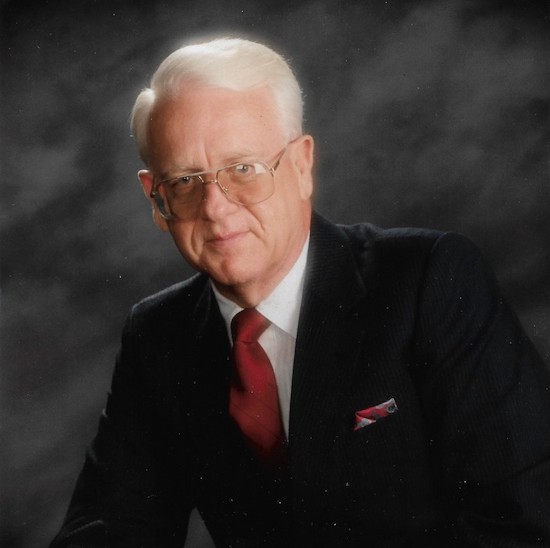Pepperdine University Mourns the Passing of Seaver College Professor Emeritus Fred Casmir

Pepperdine University is saddened to announce the passing of Seaver College Professor Emeritus Fred Casmir, who died on Sunday, June 23, 2024, at the age of 95.
Casmir began teaching at Pepperdine University in 1957 as a communication professor. A German immigrant, his courses specialized in international studies, intercultural communication, and advanced communication theory. Using these areas of expertise, Casmir was instrumental in helping Seaver College establish its international studies and public relations majors throughout his 42-year career as a faculty member.
“Dr. Casmir was definitely a servant of the Lord,” says Esther O’Connor, Casmir’s former Communication Division associate. “He always had the students in mind first. As a colleague, he became my mentor. I adored him. I could talk to him about anything, even if I was having a bad day, and he would always find a way to lift me up. I can’t even find the words to describe how great a man he was.”
Born in Koepenick, an eastern suburb of Berlin, Germany, in 1928, Casmir was a young child during the rise of the Nazi Party and Adolf Hitler. He served as a leader in the Hitler Youth and joined the German Air Force, the Luftwaffe, as an officer’s cadet at age 16. Casmir was called into combat and ordered to fight against the Russian ground infantry during the final months of the war. Following Germany’s surrender, he lived in Frankfurt alongside his uncle. There Casmir converted to Christianity after encountering missionaries from the Churches of Christ.
After surviving the war and committing his life to faith, Casmir traveled to the United States to attend college. He graduated with a bachelor's degree in speech and religion from Lipscomb University before earning a master’s degree and a PhD in speech from Ohio State University. His doctoral dissertation was titled: “Hitler: A Study in Persuasion,” and analyzed the rhetoric of the Nazi dictator's public addresses.
Casmir began to serve as a Church of Christ minister while earning his doctorate degree. This commitment to the Church of Christ movement continued beyond his studies and eventually led him to Pepperdine University, where he served as a professor of communication while he continued preaching at the East Los Angeles Church of Christ.
As a member of the Communication Division, Casmir was known as a challenging, intimidating, and dedicated educator. He held his students to high standards and would often sacrifice his own time to help them achieve their goals both inside and outside the classroom. Casmir measured his own individual scholarship using the same strict degree of excellence. Throughout his career, he authored more than 90 articles and 20 books and annuals and developed his “Third Culture Building Theory,” which helped redefine intercultural communication.
“Fred was a man of great faith,” says Ken Waters, who was Casmir’s student, advisee, and eventual faculty colleague at Seaver College. “He was passionate about the Lord and the field of communication. Fred had a way of seeing things the rest of us couldn’t see. He started the international studies and public relations majors at Seaver College, and he was a strong advocate of the curriculum we are still using. Dr. Casmir was a pioneer not just at Pepperdine, but he was well received at the national and international levels too.”
Casmir was devoted to the idea that communication shapes each individual's lived experience. A German immigrant himself, he became fascinated with how people from different cultures or backgrounds bridged their communication gaps and sought to understand one another. His research challenged scholars of his time to consider communication as an ever-changing field prone to reinvention and continual innovation.
This passion for the nuances and complexities of communication, especially across cultures, helped Casmir become one of the founding fathers of intercultural communication. The former World War II refugee reached beyond his scholarly field to incorporate the study of foreign cultures and customs. He brought his students alongside him throughout this process.
“I always saw my calling to be the start of something, including interactions with those in other disciplines,” said Casmir in a 2011 interview. “I had very little interest in getting stuck. I have always been challenged by my attempts to think and explore, together with those from other backgrounds.”
Following his retirement in 1999, Casmir and his family relocated to Flagstaff, Arizona. There he became involved with the Northern Arizona Church of Christ. He was an active leader and teacher within their college ministry program throughout the remainder of his life.
Casmir is survived by his wife Mina Casmir; daughter, Karen Long; and son, Fred O. Casmir. He is also survived by five grandchildren, eight great-grandchildren, and one great-great-grandson.
A celebration of Casmir’s life will take place on Saturday, July 13, 2024, at 10 AM at the Norvel Owens Mortuary in Flagstaff, Arizona. Streaming information can be found on the mortuary website. In lieu of flowers and cards, the Casmir family requests contributions to the High Country Human Shelter, the Northern Arizona Church of Christ Youth Program, or the Museum of Northern Arizona.